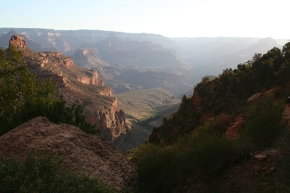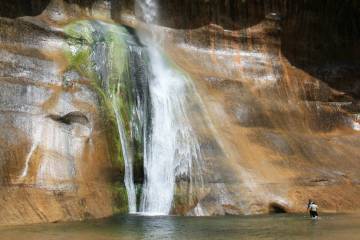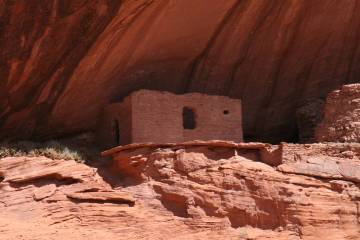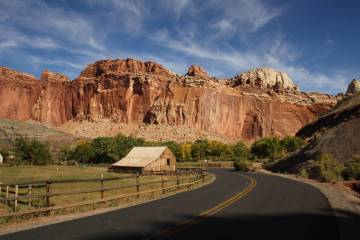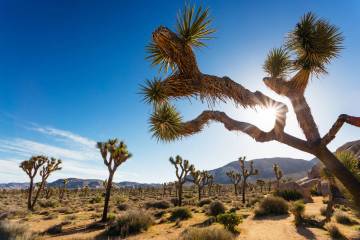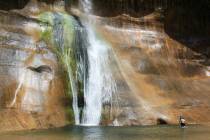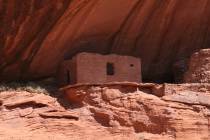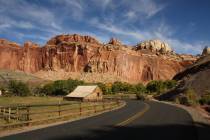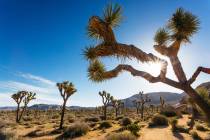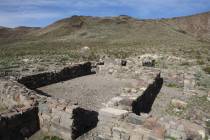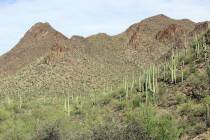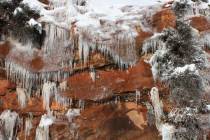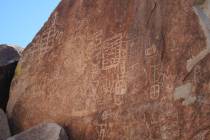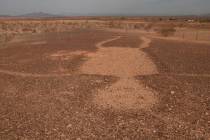Bright Angel Trail footpath offers strenuous, positive Grand Canyon experience
Every hiker who has heard of it dreams of walking the Bright Angel Trail, the famous footpath that snakes from the South Rim of the Grand Canyon all the way to the Colorado River on the canyon floor, with spectacular scenery almost every step of the way. If you’re going to hike it, May is one of the best months to do so, with average daily highs at 72 degrees on the rim and in the 80s about halfway down, at Indian Garden.
While many backpackers travel the entire trail down to the river, shorter segments of Bright Angel Trail are great for more leisurely, one-day hikes. (Nobody should try to hike to the river and back in a single day.)
Depending on the time you have and your physical abilities, there are three day-hike destinations you might choose: 1½-Mile Resthouse is about three miles round trip; 3-Mile Resthouse, at about six miles round trip; and Indian Garden, which is nine miles round trip. You will lose 1,131 feet, 2,112 feet and 3,060 feet in elevation, respectively, making it strenuous hiking on your return to the rim. Figuring it will take twice as long to hike back up as to descend, allow enough time for an error in calculation, and carry a flashlight or headlamp even if you think it is only a day hike.
The Resthouses were constructed by the Civilian Conservation Corps from native stone in 1935 and 1936. They all have shade, toilets and resting benches. Drinking water is usually available this time of year, although the pipes break once in a while, so plan on carrying all the water you need just in case.
The trailhead is at an elevation of 6,820 feet and is just west of the Bright Angel Lodge near the Village/Hermits Rest shuttle transfer station. The trail was first worn by prehistoric hunters and gatherers followed by miners in the 19th century. Now it is used each year by thousands of hikers, backpackers and mule trains taking visitors down into the canyon.
The beginning of the trail is fairly steep, and there are extreme drop-offs, so this isn’t a good one for small children. It is also a hot and sun-exposed trail, except at the resthouses, so you will need sunscreen, a wide-brim hat, protective clothing and good hiking boots. Trekking poles come in handy, and an early morning start for this hike is imperative.
Just a few hundred yards down the trail, you will come to the first of two small man-made tunnels you will pass through. After passing through the first one, look up on the left cliff wall for a shallow alcove. This is called Mallory’s Grotto. Climbing up into it isn’t allowed, but from the trail, you’ll be able to see red pictographs, some of which appear to represent elk. These are thought to have been painted by ancestors of the Havasupai Indians, who reside in the western Grand Canyon.
Indian Garden is the farthest destination you should attempt to reach on a one-day round trip. There you will find a small manned ranger station, campground and picnic area. You need to acquire a permit in advance to stay at the campground. There are plenty of mature deciduous trees and even a spot you can sit, soak and cool off in Bright Angel Creek before your return to the rim. Watch your backpacks, as there are lots of inquisitive squirrels.
You might encounter a mule train while hiking this trail. Unless the wrangler instructs you to do otherwise, stop hiking and stand quietly on the uphill side of the trail and wait for them to pass by.
Deborah Wall is the author of “Great Hikes, A Cerca Country Guide” and “Base Camp Las Vegas: Hiking the Southwestern States,” published by Stephens Press. She can be reached at deborabus@aol.com.



